Mirror Worlds
This spring semester I'm enrolled in a course called "Problems in Information Science: Digital Identity" at The University of Colorado Boulder. This course explores and analyzes identity in a digital era. We investigate both social and technical aspects of how identity is represented and experienced through technology using theoretical and design-based inquiry.
I only just starting taking the course, but I'm already extremely interested and engaged in the topics we're discussing. Two times a week we are given multiple readings to analyze and write responses to. This week we were given a pdf copy of the first 2 chapters of David Gelernter's novel Mirror Worlds, which was published in 1992.
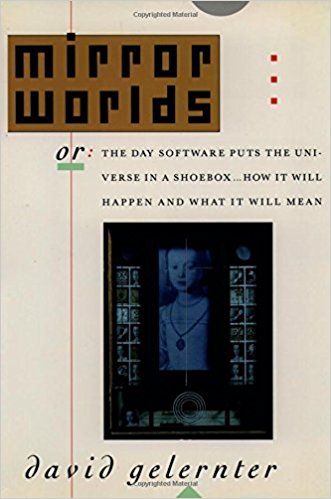
Like many of the previous readings I was assigned, this read was very interesting to me and gave me a magical perspective of Gelernter's technologically advanced and sci-fy software application. In Gelernter’s book he explains his ingenuous and very forward thinking digital concept, Mirror Worlds. It is an extremely interesting and very attainable computer software and simulation that will allow citizens to explore history and any part of the world in a simulation like journey with all the information we could ever want without leaving the comfort of our home. He goes into detail laying out all the technicalities of the software and how it should be utilized. Gelernter explains that there are several key ingredients that make up a Mirror World, “a deep picture that is also a live picture, plus agents, plus history and experience. Then there’s a fifth element: the basic idea that knits these all together” (p. 28) This information machinery will revolutionize the way we socialize, gather intellect, and just overall the way things are presented to us in everyday life.
Because I hadn’t been born yet by the time this book was published I don’t feel like I can fully grasp the sheer impressiveness of this author’s presumptions. Even though many of ideas explained are science-fiction, Geleernter (1992) does believe so stating, “There is nothing science-fictionish about these programs” (p. 27). He explains in detail the ways these ideas can be reality and he is quite passionate about how it will shape the overall construct of our society in this information and technology age. I believe that we are quite close to a world where the software and technology of his “Mirror Worlds” will be attainable. I found many of the foundational ideas to already have been adapted in the television anthology series Black Mirror.
If you haven't read this text, below is my marked up personal copy of the first two chapter's of this novel. If you have the time on your hands, I would love to hear your thoughts on his cutting edge novel.

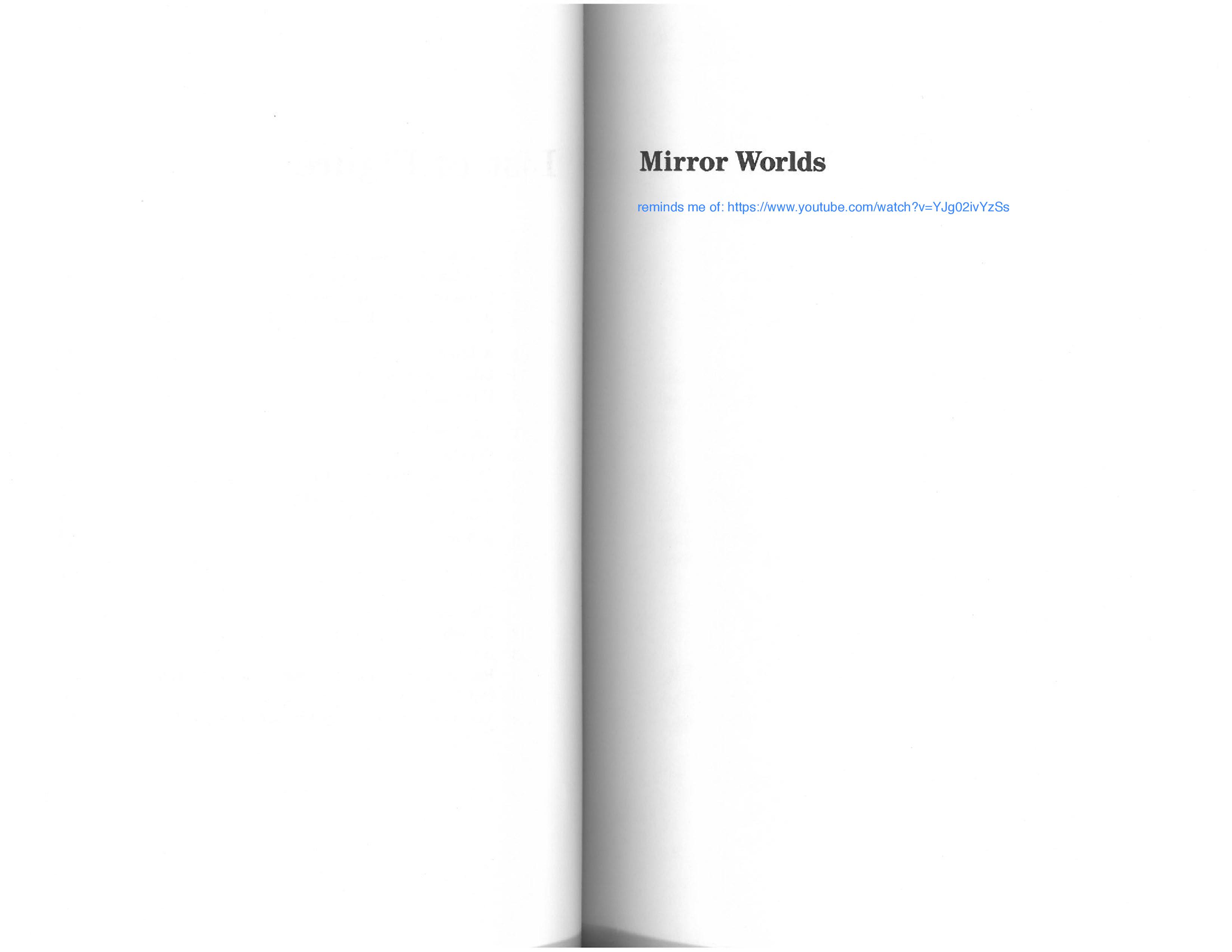

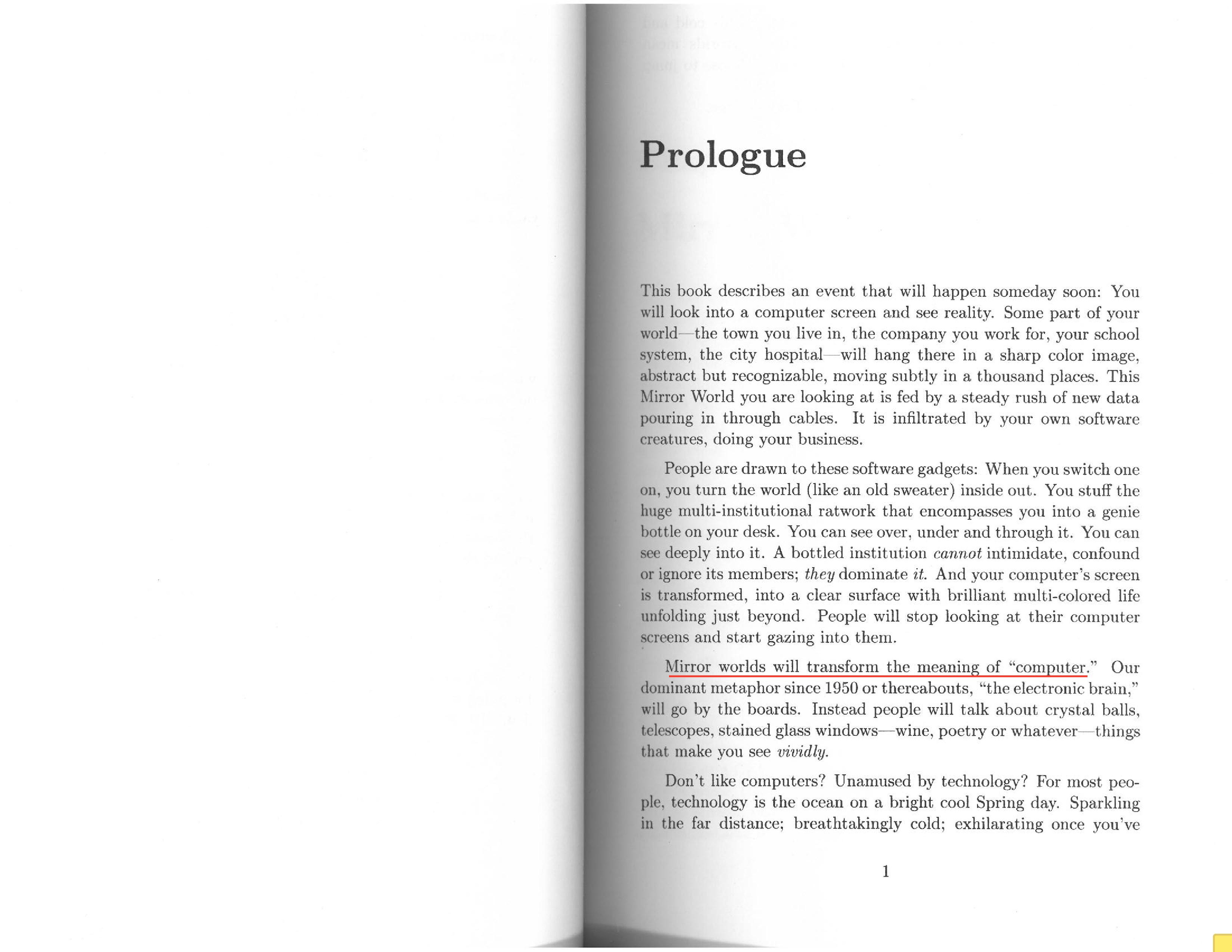
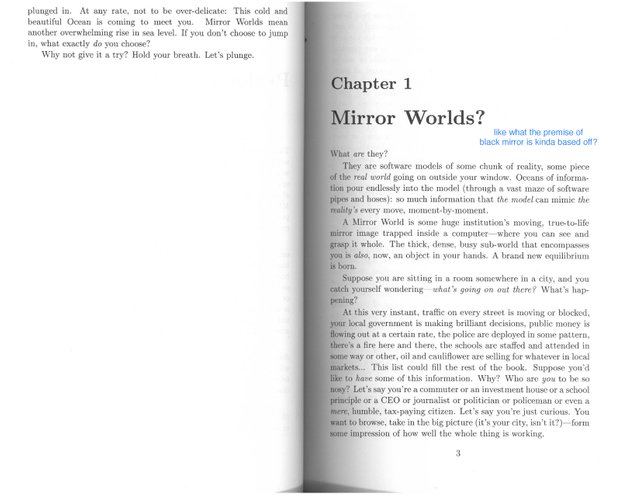
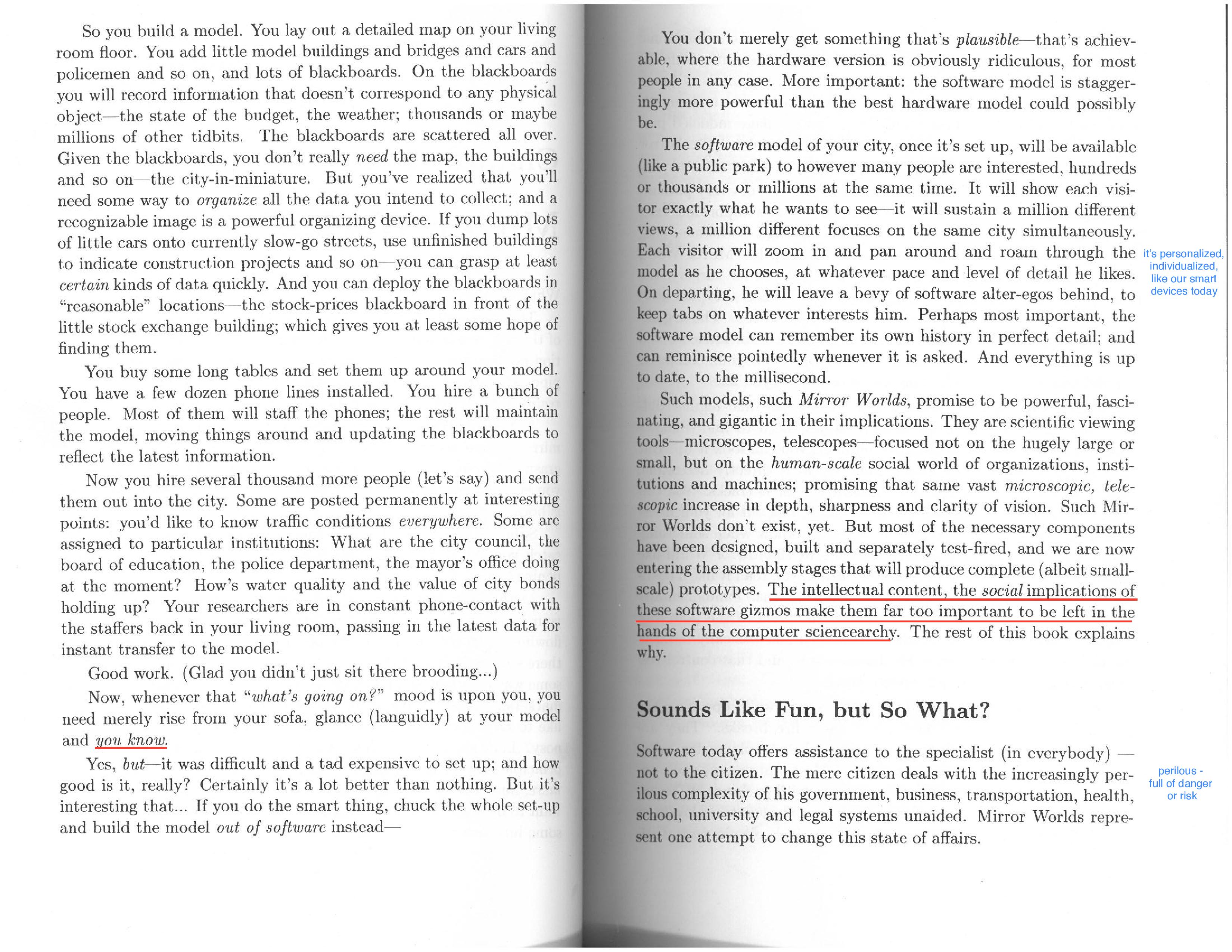
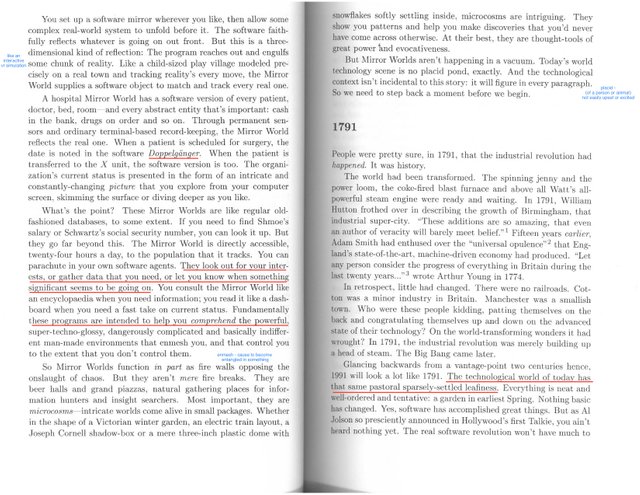
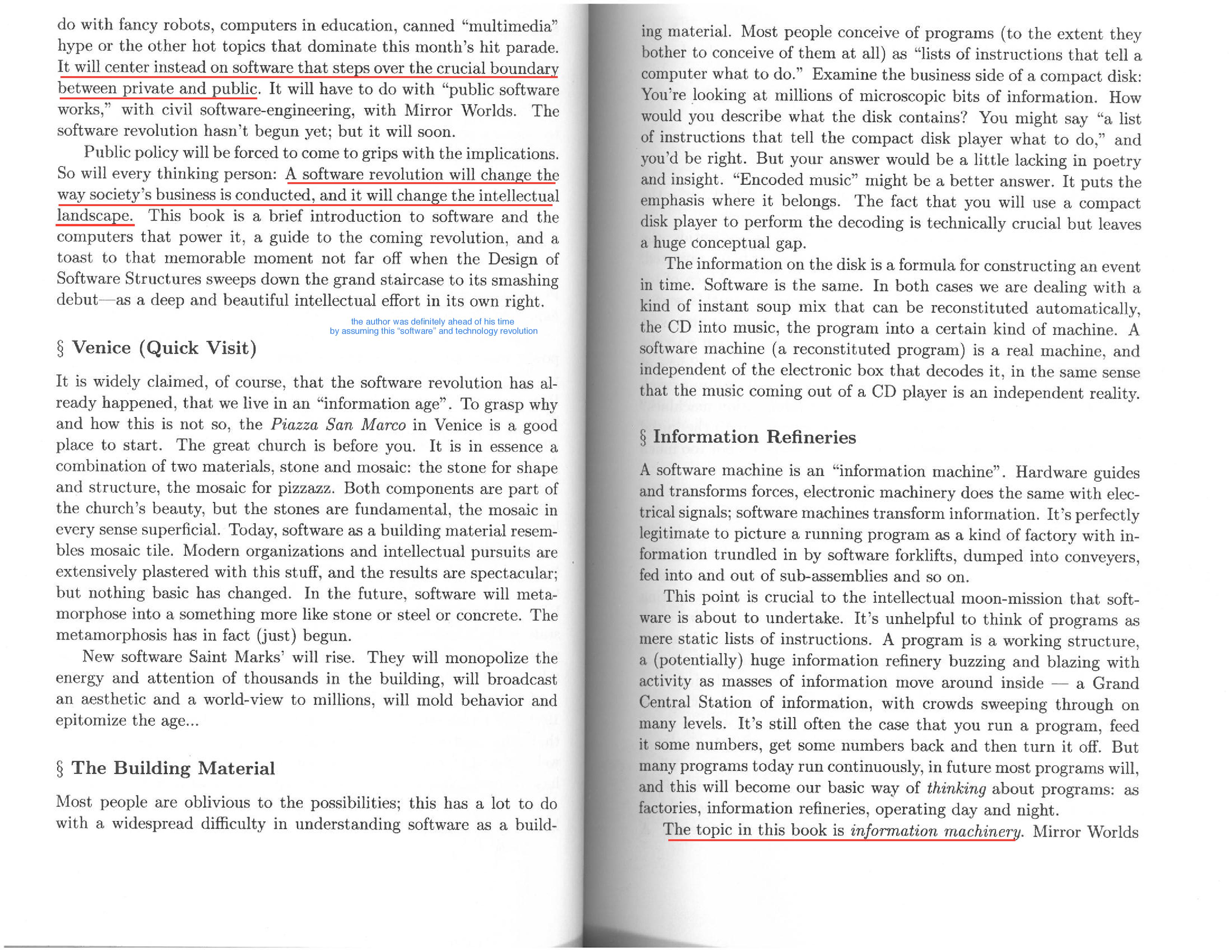
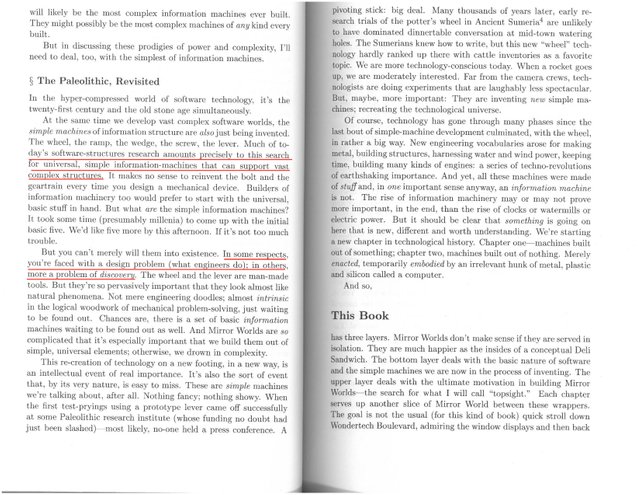
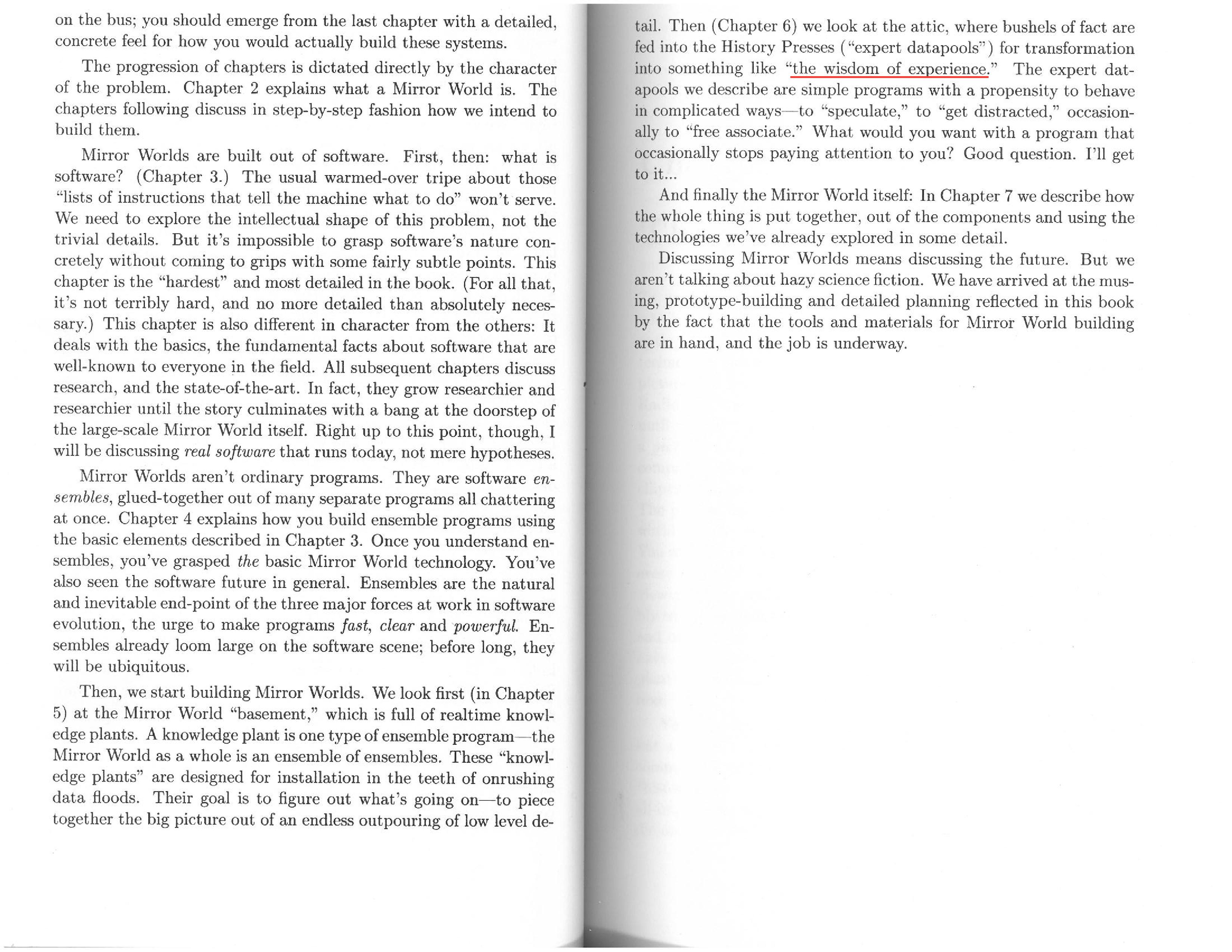
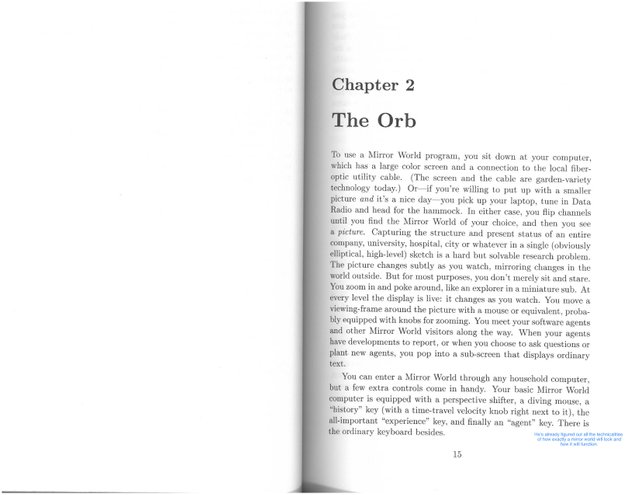
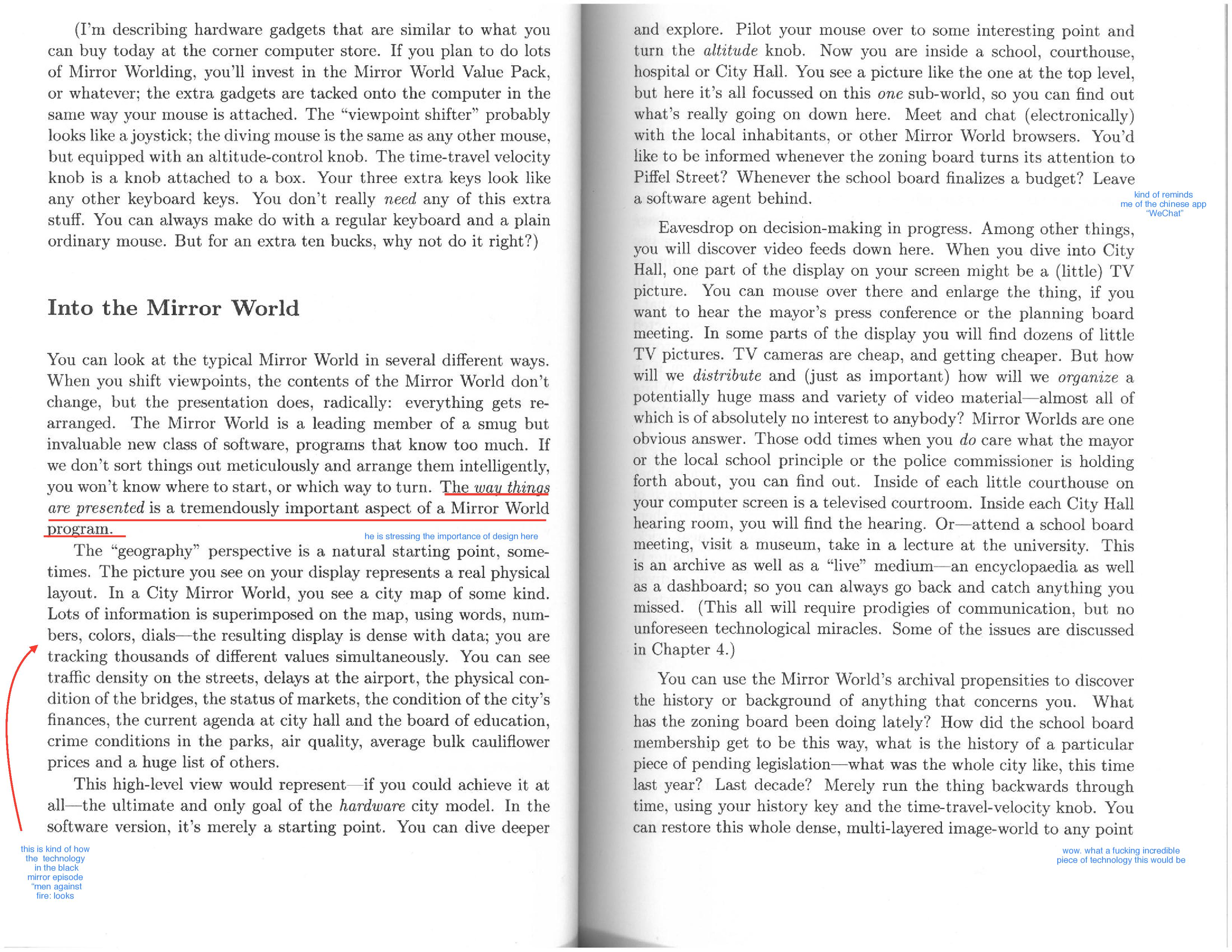
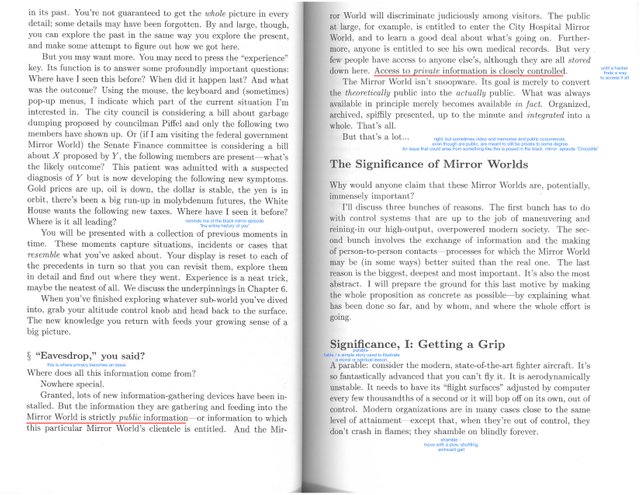
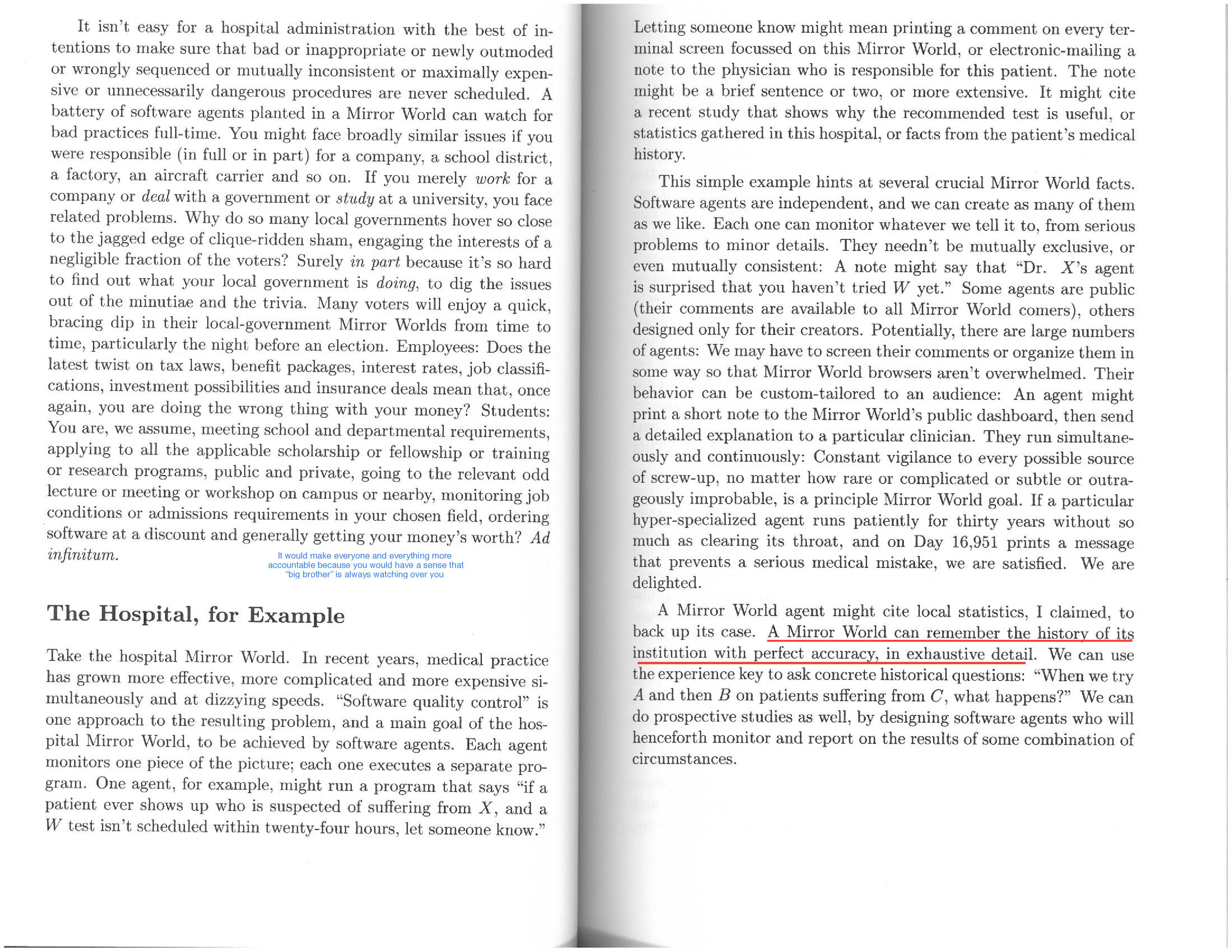
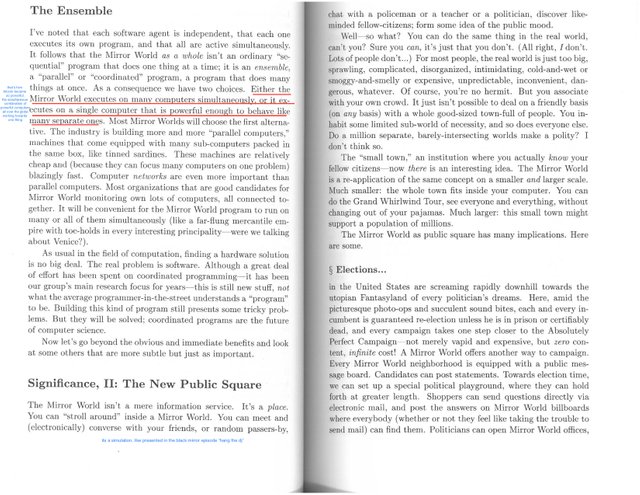
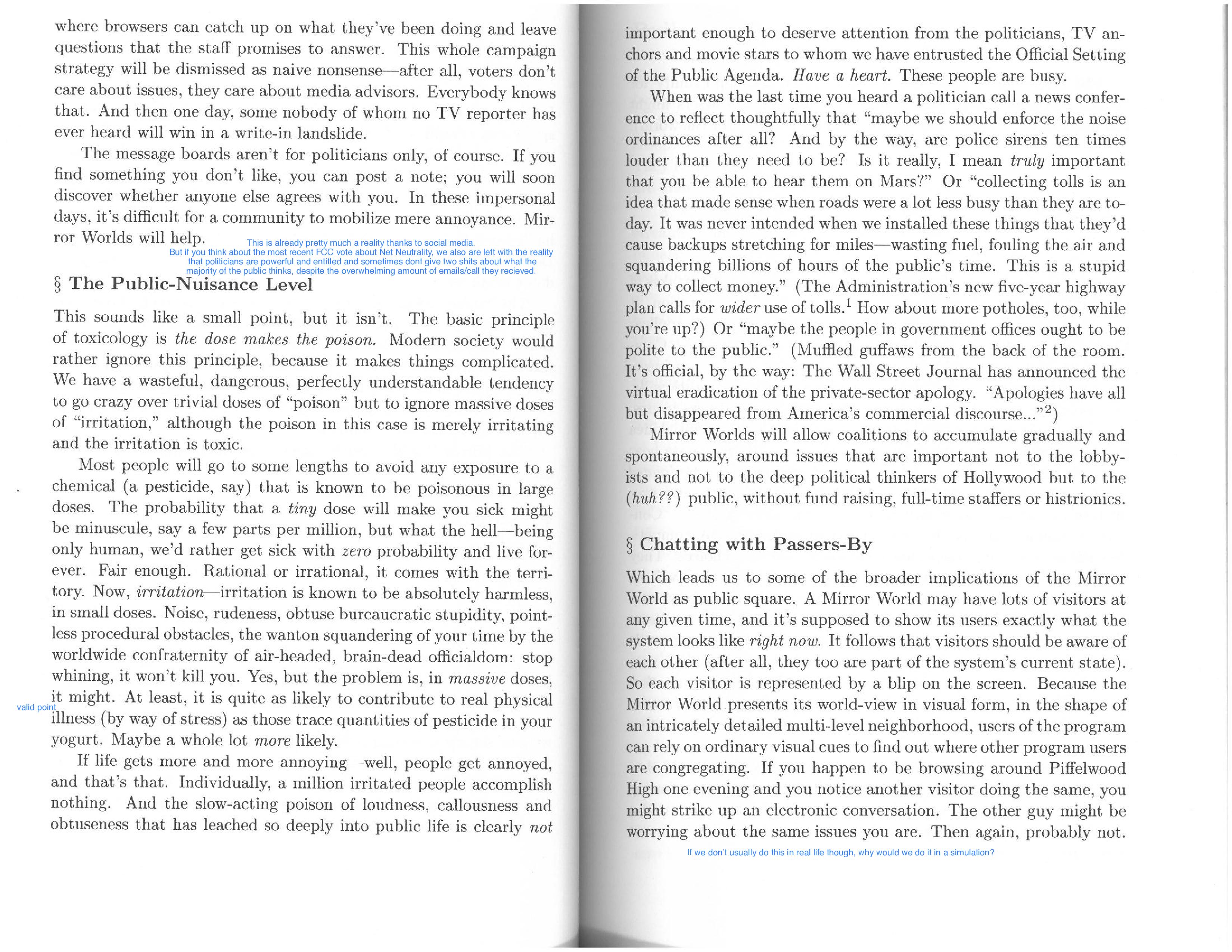
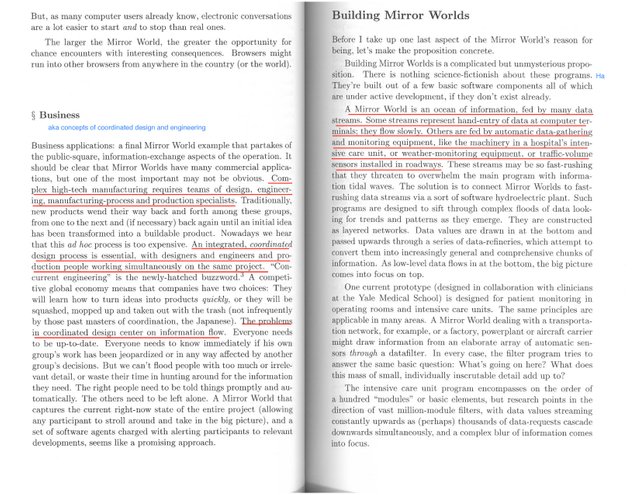
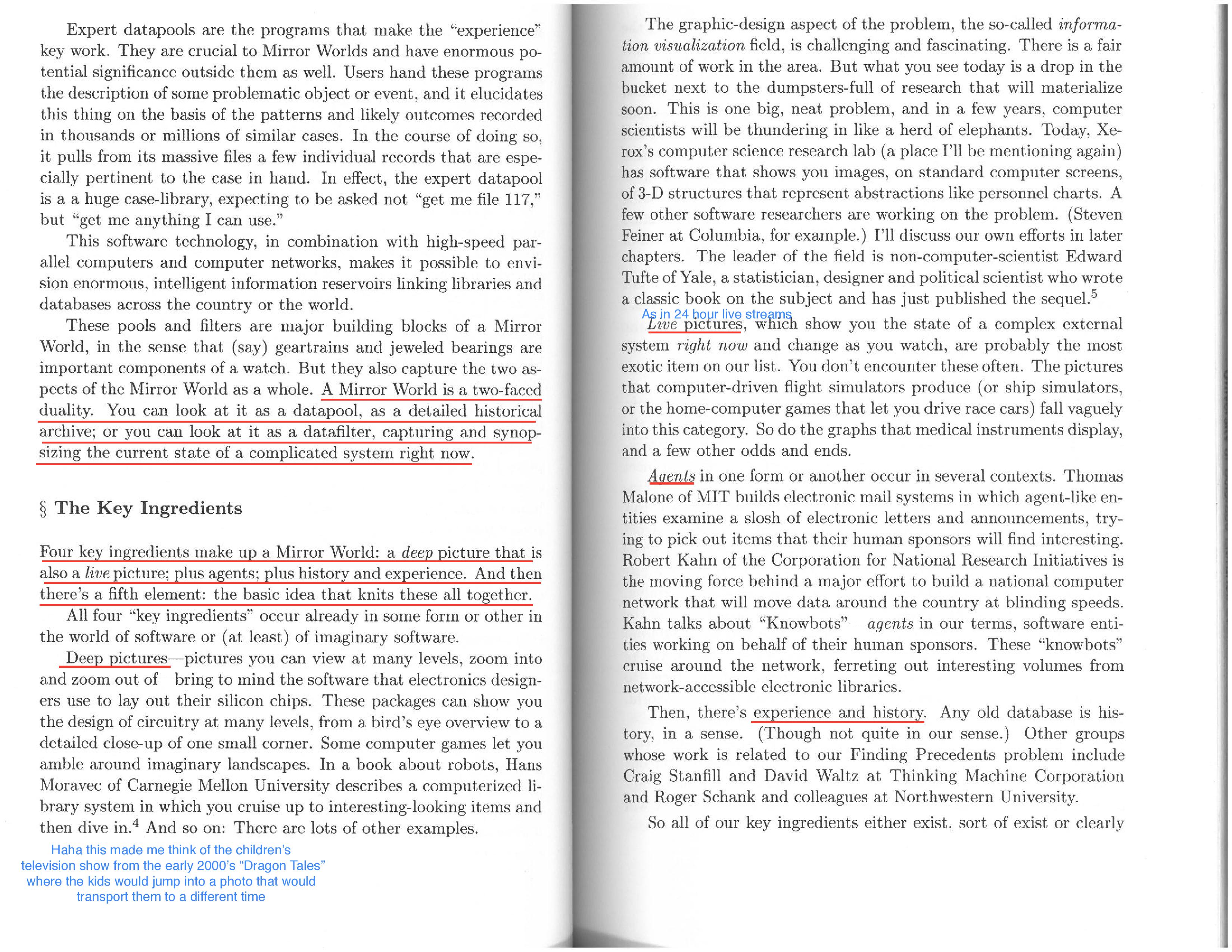
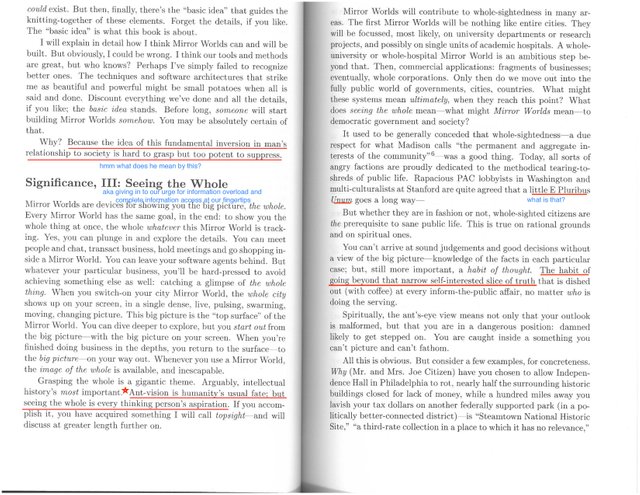
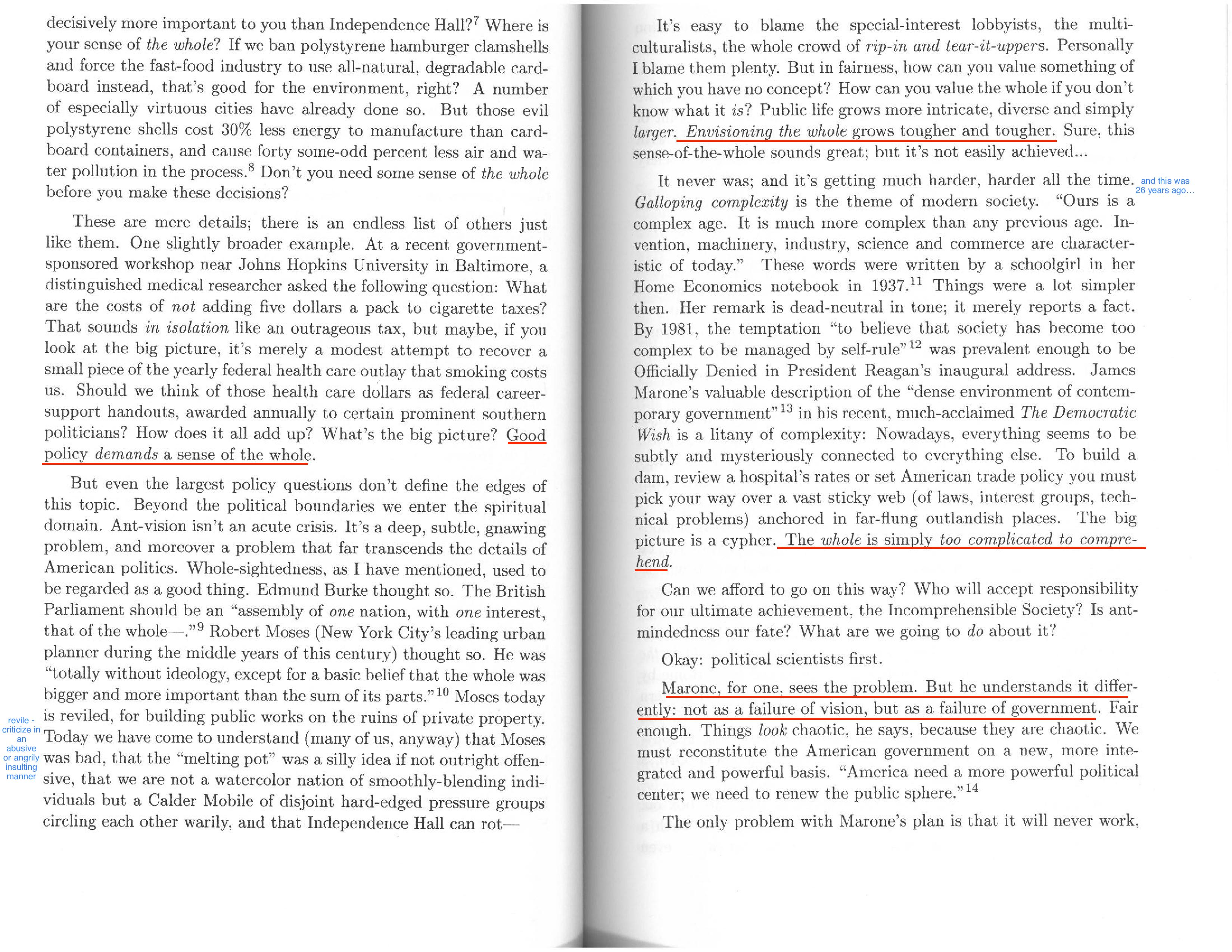
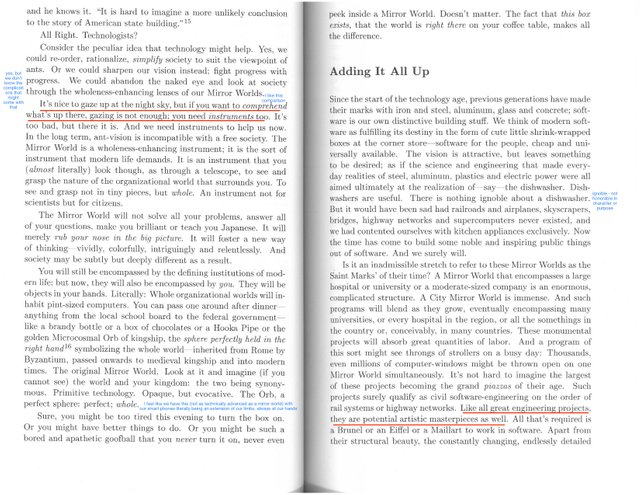
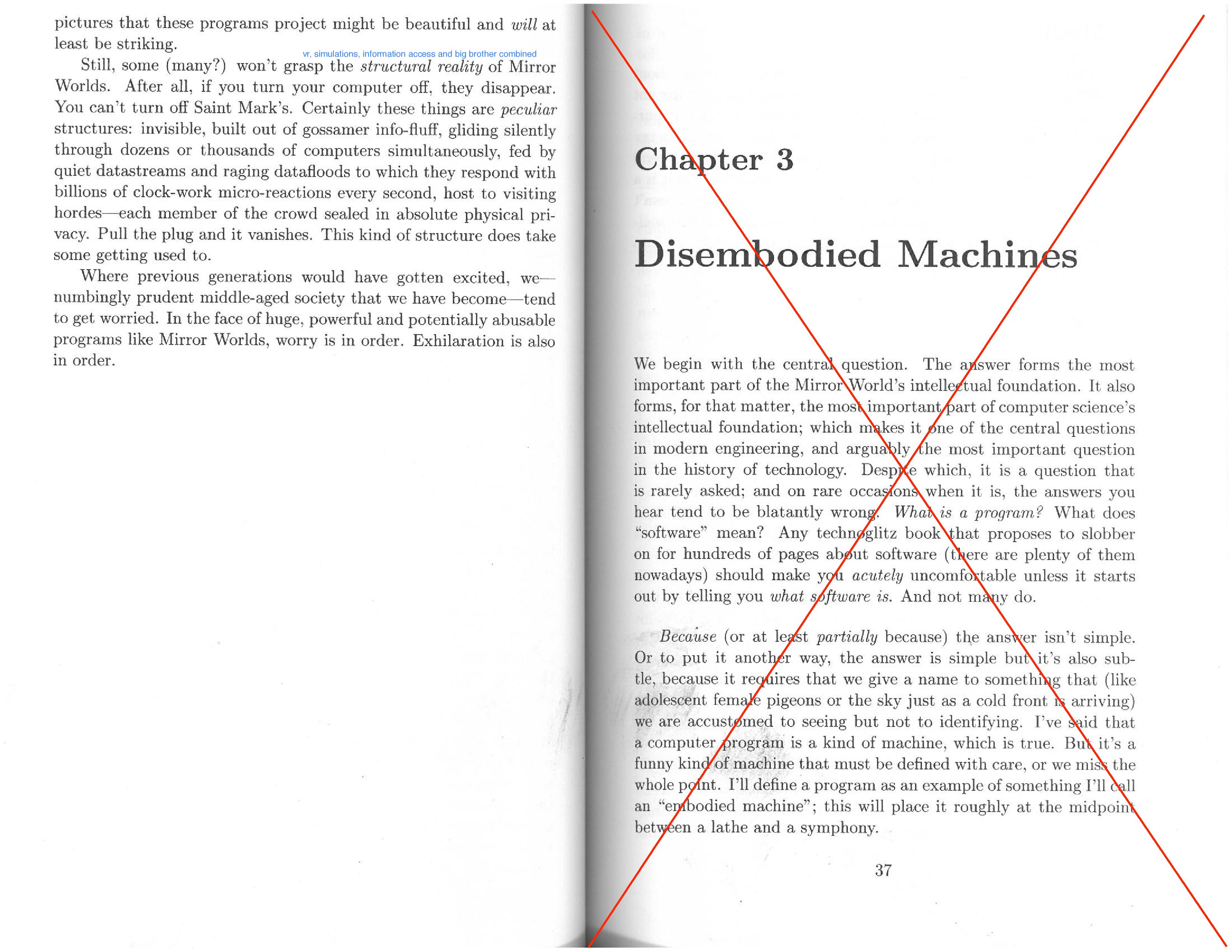
Gelernter believes that this concept isn’t science-fiction, even though technically it was at the time. Do you think, now 26 years later, that this concept is even more attainable than he believed when he first constructed the idea? Do you think any of the concepts in mentioned are already being utilized today in a somewhat different format than he envisioned? What’s a good example of an “agent” that’s currently being utilized today (Would Amazon’s Alexa or Siri be considered some)?
Gelernter, D. (1992). Mirror Worlds. Oxford University Press US. (Prologue, Ch1, Ch2).


David Gelernter was definitely quite a forward thinker for his time. But perhaps the most notable aspect of all this, is how close we already are to the world he's describing.
To put that into perspective, I need only direct you to this 360° video in 8K on YouTube, where it literally feels like you're flying around Angel Falls, Venezuela, also from the comfort of your own home...!
ps. Make sure you maximize to full screen to achieve the full effect!